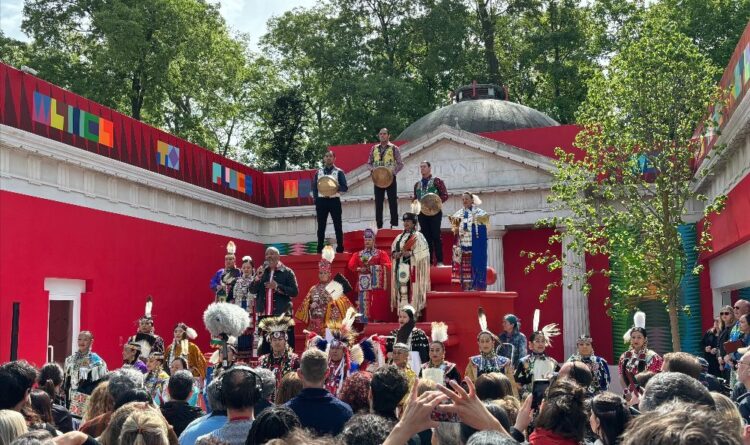Black Lives Matter.
This past week marked the anniversaries of the deaths of Eric Garner and Sandra Bland, along with the third anniversary of the inception of the Black Lives Matter movement. In the wake of the recent shootings of Alton Sterling and Philando Castile, along with other senseless acts of violence, these anniversaries are especially tragic. We at Creative Capital offer our support to artists, colleagues and staff who are struggling to process the continued systemic and largely unpunished violence against Black people in America. Creative Capital stands in solidarity with the Black Lives Matter movement and those who feel this brutality is unjust.
We are grateful for the artists all across America who are directly addressing our broken criminal justice system, systemic racism, sexism, homophobia, xenophobia and other forms of bigotry. Artists have the power to push our societal conversation forward–asking difficult questions, taking personal risks. We are proud to support their work, protect their freedom of expression and help amplify their voices. We have highlighted some relevant artist projects below, and members of our staff have contributed their own personal statements and resources as well. We invite artists and other members of our community to share more resources and responses on our Facebook page or below in the comments. We welcome feedback about what more we can do during this difficult time.
– Suzy and the staff at Creative Capital
Dread Scott’s Update on a 1930s NAACP Flag
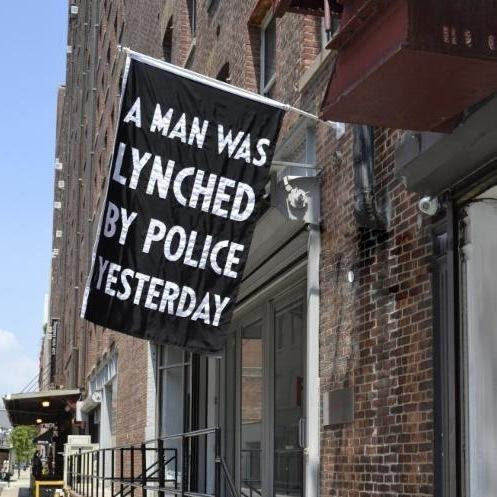 “During the Jim Crow era, Black people were terrorized by lynching–often public and publicized extra legal torture and murder of Black people. It was a threat that hung over all Black people who knew that for any reason or no reason whatsoever you could be killed and the killers would never be brought to justice. Now the police are playing the same role of terror that lynch mobs did at the turn of the century.”
“During the Jim Crow era, Black people were terrorized by lynching–often public and publicized extra legal torture and murder of Black people. It was a threat that hung over all Black people who knew that for any reason or no reason whatsoever you could be killed and the killers would never be brought to justice. Now the police are playing the same role of terror that lynch mobs did at the turn of the century.”
Read the statement from Hrag Vartanian and Dread Scott
Staff Voices: Ana Cecilia Alvarez
Marketing & Administrative Associate
“As a non-Black person of color, I own a particular responsibility to stand in solidarity with Black Lives Matter and my Black friends and coworkers. To my other non-Black POC-we cannot stay silent because ‘this isn’t our issue.’ Our silence signals complicity with anti-Black racism and police brutality. It signals death. In the words of my friend, the writer Larissa Pham (who’s guide to ally-ship I have shared below) we cannot ‘let the fear of being responsible stop [us] from trying to engage and learn and take action.’ We need to take on that responsibility. We owe it to the Black folks in our communities, to Eric, Michael, Trayvon, Akai, Tamir, Walter, Freddie, Sandra, Alton, Philando, and the hundreds of other Black Americans dead by the hands of the police.”
Read more about how to take action and become an ally
Sable Elyse Smith Pens “Ecstatic Resilience” on Recess Art
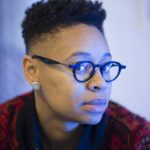 “I’ve listened to my peers recite remixed versions of the names of the recent fallen, lately. I’ve watched the faces in white spaces as the words leave lips. I moisten my lips to receive these names. I insert my own name at times wondering the difference between me and them… And I think about the camouflage of mourning and how space shapes itself around each of our bodies, pushing in a little more each time.”
“I’ve listened to my peers recite remixed versions of the names of the recent fallen, lately. I’ve watched the faces in white spaces as the words leave lips. I moisten my lips to receive these names. I insert my own name at times wondering the difference between me and them… And I think about the camouflage of mourning and how space shapes itself around each of our bodies, pushing in a little more each time.”
Staff Voices: Alex Teplitzky
Communications Associate
“With social media, it’s always tempting to add your opinion to the fray. But as a white person, in circumstances where violence is committed against Black bodies, this instinct isn’t helpful. I have felt grateful, in times like these, that social media allows me unfiltered access to hear from Black Americans. I encourage other white people to use social media to follow people outside their friend circle. If you believe in diversity in real life, then a first step toward integration is possible in your digital networks.
“For white people, this is a time to learn, to really understand how black people are feeling. It’s simply a matter of listening. If we want to move forward, we have to do it together.”
Here’s a list of people and accounts I follow:
– Touré
– Deray McKesson
– Kimberly Drew and Black Contemporary Art
– Kayla Reed
– Antonio French
– Jamelle Bouie
– Black Lives Matter
Art That Highlights Violence Against Black & Trans Bodies
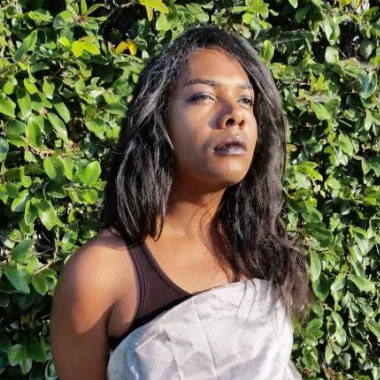 Eunsong Kim and Gelare Khoshgozaran won an 2015 Arts Writers Grant for their blog, Contemptorary, that features women of color and indigenous artists. They recently invited Micha Cárdenas to talk about her project Unstoppable.
Eunsong Kim and Gelare Khoshgozaran won an 2015 Arts Writers Grant for their blog, Contemptorary, that features women of color and indigenous artists. They recently invited Micha Cárdenas to talk about her project Unstoppable.
“It seems that for now, maybe the most important function of Unstoppable is to make perceptible to audiences the kind of urgency that many trans women and black people feel on a daily basis. Making bulletproof clothing accessible invites a conversation about the very real experience that I have had of leaving my house everyday and not knowing if I’ll make it home that night.”
Read “What if we got free?”
Staff Voices: Krista Fabian DeCastro
Workshop Manager, Professional Development Program
“Artists, brave activists, friends, family members and the staff of Creative Capital and other bold organizations are the shining light in these times. While sad, angry and afraid I am heartened by what can change when we all come together and speak out. Let’s continue to do so, be brave and strong and unyielding and work together in support of Black Lives Matter and racial justice and against all forms of discrimination, oppression and violence.”
Simone Leigh’s Residency Focuses on Healing & Self Care
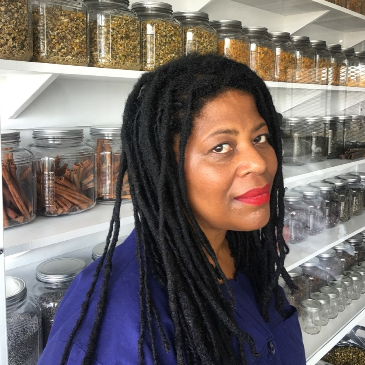 “In my community, I’ve seen our lives get harder, not easier,” Simone Leigh told the Guardian. Her residency and exhibition at the New Museum brings to life her work, The Waiting Room. The project focuses on holistic healing, especially for black women. “What I’m really interested in is the survival tactics and self-determinant actions of Black women,” she told Artsy. “Healthcare is one way in which Black women have disseminated their ideas across the U.S., historically, because one of the first jobs that they ever had access to was nursing.”
“In my community, I’ve seen our lives get harder, not easier,” Simone Leigh told the Guardian. Her residency and exhibition at the New Museum brings to life her work, The Waiting Room. The project focuses on holistic healing, especially for black women. “What I’m really interested in is the survival tactics and self-determinant actions of Black women,” she told Artsy. “Healthcare is one way in which Black women have disseminated their ideas across the U.S., historically, because one of the first jobs that they ever had access to was nursing.”
Visit the New Museum’s website to see more info on “The Waiting Room” by Simone Leigh
Staff Voices: Sheryl Oppenheim
Institutional Giving Associate
Until all of us are free, none of us are free. Rest in peace to Sandra Bland, Philando Castile, Shantel Davis, Kyam Livingston, Alton Sterling, and many others, some of whose names we will never know. The police officers who have been killed should also be considered victims of a racist and dehumanizing system that is up to us to change. We must hold ourselves, our families, our friends, and our colleagues (whether they are police or artists) accountable. We must all, as Americans, continue to talk to each other, continue to engage those we disagree with, and to work together to build communities, and so a nation, where every American can expect justice and fairness. Those in power must not only speak out against injustice, but acknowledge that systemic change will indeed require the relinquishing of power.
Carlos Motta Brings a History of Persecution to Light
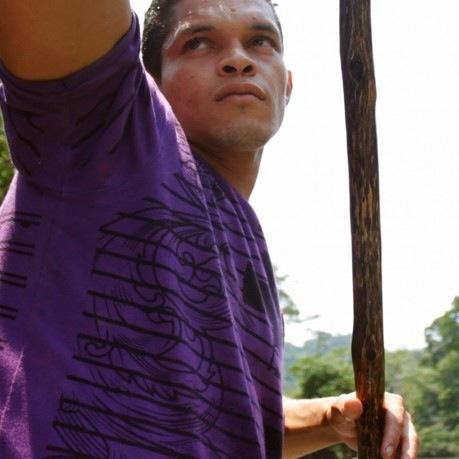
Carlos Motta’s exhibition at PAMM in Miami, Histories for the Future explores ideas of gender, sexuality, and violence through a series of works cited in Latin America. Including four videos and an installation of 20 miniature sculptures, this exhibition takes the viewer back to the time of the conquest of the Americas (1492-1898), when people were brutally condemned for engaging in non-normative sexual practices.
Read more info about the exhibition
Staff Voice: Valerie Guido
Program Associate, Doris Duke Performing Artist Awards
Having a career in the arts has opened my eyes to a myriad of work that artists have given the world in response to the violence against Black Americans. I have taken this opportunity to listen, to study, to learn. And then I’ve used these works and messages as a vessel to open dialogue with the white individuals in my life, sharing their powerful words to help build more understanding.
Education is vital. Listening is vital. Change is vital.
Staff Voice: Megan Callaghan
Program Assistant, Doris Duke Performing Artist Awards
While it should not take instances like these for white Americans to realize that Black Lives Matter, we must now act and generate change. Listening is key, but silence is deadly. Don’t let your discomfort keep you quiet.
Staff Voice: Jaime Kight
Assistant Director, Doris Duke Performing Artist Award
Violence hurts. It’s easy to sit silently with grief, but doing so means we are not advocating for change. I’m realizing that support and action are necessary to ending violence against Black Americans. Change cannot take place unless we work for it.
Resources for Healing and Coming Together
* A Reading List for America [NYPL]
* Understanding Systemic Oppression in the United States [Google doc]
* Healing Justice for Black Lives Matter [Just Healing]
* “Death in Black and White” by Michael Eric Dyson [New York Times]
* We Must End State Violence Against Black Bodies [Democracy Now!]
* Six Ways White People Can Help End the War on Black People [TED Talks]
* Vision & Justice [Aperture Magazine]
* “Hope is an Embrace of the Unknown”: Rebecca Solnit on Living in Dark Times [The Guardian]
